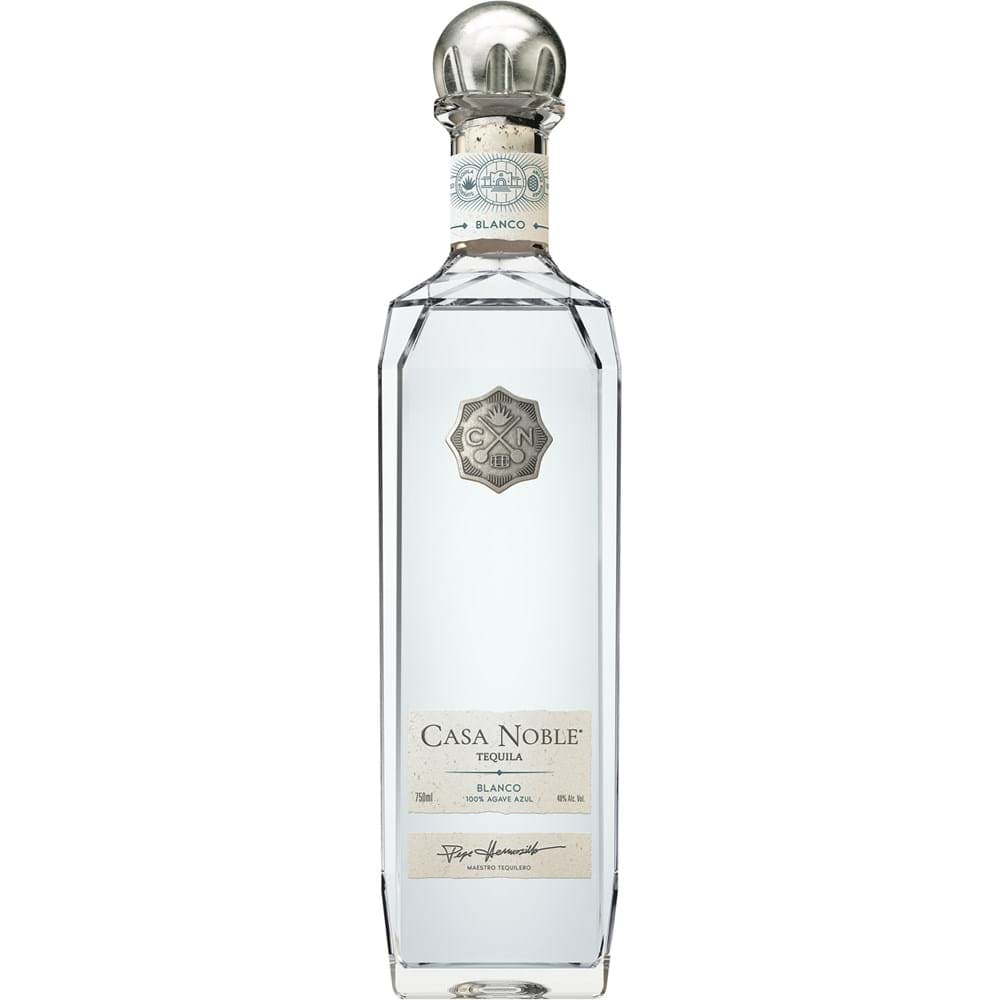
Casa Noble Blanco Tequila
Discover the Essence of Casa Noble Blanco Tequila
Immerse yourself in the unparalleled purity of Casa Noble Blanco Tequila, meticulously crafted from the finest Blue Weber Agave. This premium tequila is not just a drink; it's an experience designed to elevate your senses and take your tasting journey to new heights.
Why Choose Casa Noble Blanco Tequila?
- Distinctive Flavor Profile: Savor a harmonious blend of honey, buttery-sweet cooked agave, and a refreshing hint of citrus that dances on your palate.
- Triple Distillation: Enjoy the smooth, velvety finish that comes from our impeccable triple distillation process, ensuring a well-balanced and refined taste.
- Premium Quality: Casa Noble Blanco stands out as a benchmark in the world of tequila, embodying sophistication and excellence in every drop.
With a clean and crisp taste, our Blanco tequila celebrates the vibrant flavor of noble Blue Weber Agave. Each sip is enhanced by enticing aromas that prepare your palate for a delightful tasting journey.
Elevate Your Experience
Choose Casa Noble Blanco Tequila for a truly exceptional experience that highlights the art of distillation and the rich heritage of tequila. Elevate your gatherings and celebrations with a spirit that is in a class of its own.

Explore a World of Spirits and Liquor through our Comprehensive FAQ Section.
Discover a World of Spirits and Liquor in our Helpful FAQ Section.
Types of Spirits
- Whiskey: Made from fermented grain mash and aged in wooden casks.
- Vodka: Typically distilled from grains or potatoes and known for its clear, neutral flavor.
- Rum: Produced from sugarcane byproducts like molasses or sugarcane juice.
- Tequila: Made from the blue agave plant, primarily in the area surrounding Tequila, Mexico.
- Gin: Distilled with botanicals, primarily juniper berries, giving it a distinctive flavor.
Production Process
- Fermentation: The process where yeast converts sugars into alcohol.
- Distillation: Separating alcohol from the fermented mixture to increase its concentration.
- Aging: Storing spirits in barrels to develop flavors over time.
Tasting and Pairing
- Tasting Notes: Learn to identify different aromas, flavors, and textures.
- Food Pairings: Discover which spirits complement various dishes, enhancing the dining experience.
Cocktails and Mixology
- Classic Cocktails: Recipes and techniques for making popular drinks like the Old Fashioned, Martini, and Mojito.
- Mixology Tips: How to balance flavors and create your own cocktail recipes.
History and Culture
Origins: The historical background of different spirits.
Cultural Significance: How spirits are enjoyed and celebrated around the world.

